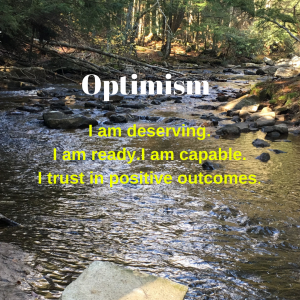
The Power of Resilience and Optimism in Parenting
Parenting is a journey filled with ups and downs, twists and turns, moments of pure joy, and moments of frustration and doubt. It’s an endeavor that requires unwavering dedication, patience, and love. However, amid the chaos, two powerful virtues can make all the difference: optimism and resilience. These qualities, valuable on their own, are also profoundly interconnected, working in tandem to help parents navigate the rough patches and emerge more vital than ever.

Optimism, as defined by the International Journal of Education and Psychological Research (IJEPR), is maintaining a positive outlook, even in the face of adversity. It’s the belief that things will ultimately work out for the best. Resilience, on the other hand, is the capacity to bounce back from setbacks, adapt, and thrive in challenging situations. These two qualities go hand in hand, creating a dynamic duo that can significantly impact your parenting journey.
So, why are optimism and resilience so crucial in parenting, and how can they be harnessed to create a more fulfilling experience for parents and children?
Optimism: Illuminating the Path Ahead
Optimism acts as a guiding light in the darkest of times. It’s the unwavering belief that, even amid turmoil, there is a silver lining. For parents, this means holding on to the conviction that they can provide their children love, support, and guidance, no matter how challenging the circumstances.
As parents, we often face moments of self-doubt, questioning whether we are doing enough or good enough. It’s during these times that optimism can be a lifeline. It encourages us to focus on the positive aspects of our parenting journey – the smiles, the small victories, and the unbreakable bond we share with our children. Maintaining an optimistic outlook can inspire us to keep moving forward, even when the path seems uncertain.
Resilience: Rising Stronger
Resilience is the inner strength that allows parents to weather the storms of parenthood and emerge from challenges stronger than before. It’s the ability to adapt to unforeseen circumstances, to learn from mistakes, and to keep going, no matter how tough the going gets.
In parenting, resilience is the armor that shields us from inevitable setbacks and disappointments. It enables us to bounce back from sleepless nights, toddler tantrums, and teenage rebellion. Resilience reminds us that we are not defined by our mistakes but by our ability to learn and grow from them.
The Symbiotic Relationship: Optimism and Resilience
What makes optimism and resilience truly powerful is their symbiotic relationship. Optimism can catalyze resilience, pushing us to persevere when the going gets tough. When we believe better days are ahead, we are more likely to summon the resilience needed to overcome obstacles.
Conversely, resilience can breed optimism. As parents, we’ve all faced those moments when we thought we couldn’t handle another challenge. Yet, we gain a newfound sense of optimism when we emerge from the storm with our heads held high. We recognize that we are more capable and resilient than we ever imagined.
Demonstrating Optimism and Resilience in Rough Patches
During the rough patches of parenting, it’s natural to question your abilities and feel overwhelmed. But remember, you have the power of optimism and resilience within you. Here are some ways to harness these qualities when the going gets tough:
-
- Positive Self-Talk: Replace self-doubt with positive affirmations. Remind yourself of your strengths and past successes as a parent.
- Seek Support: Reach out to other parents or professionals for guidance and reassurance. Sharing your challenges can alleviate the burden and provide fresh perspectives.
- Mindfulness: Practice mindfulness to stay present and focused. This can help you avoid dwelling on past mistakes or worrying about the future.
- Learn and Adapt: Embrace setbacks as opportunities for growth. Parenting is a continuous learning journey; each challenge is a chance to become a better parent.
- Celebrate Small Wins: Don’t underestimate the power of small victories. Celebrate your child’s achievements, no matter how minor, and acknowledge your role in their progress.
Remember that when you feel like giving up or questioning your abilities as a parent, you are a reservoir of untapped strength, filled with the optimism and resilience needed to weather any storm. Your journey may be filled with thorns and briars. Still, with these qualities as your allies, you can navigate the path gracefully and emerge stronger on the other side.
Parenting is a challenging yet profoundly rewarding journey. Embrace the power of optimism and resilience, the keys to surviving and thriving as a parent. You are more than good enough – you are extraordinary, capable of providing love, guidance, and unwavering support to your children. Keep believing in yourself, bouncing back, and nurturing the beautiful bond you share with your children. Your journey is a testament to the strength of the human spirit. With optimism and resilience as your companions, no challenge is too great to overcome.
I invite you to sign up for our newsletter. It is a great way to get the Virtue of the Month and tips on relationships, parenting, and self-care. In addition, you’ll be the first to know about upcoming classes for successful families.
To sign up, visit the “Newsletter” section here on the website. Enter your email address, and you’ll receive our newsletter in your inbox on Wednesdays. I appreciate your interest in bringing out the best in your children and yourself. We look forward to keeping you informed through our newsletter!



